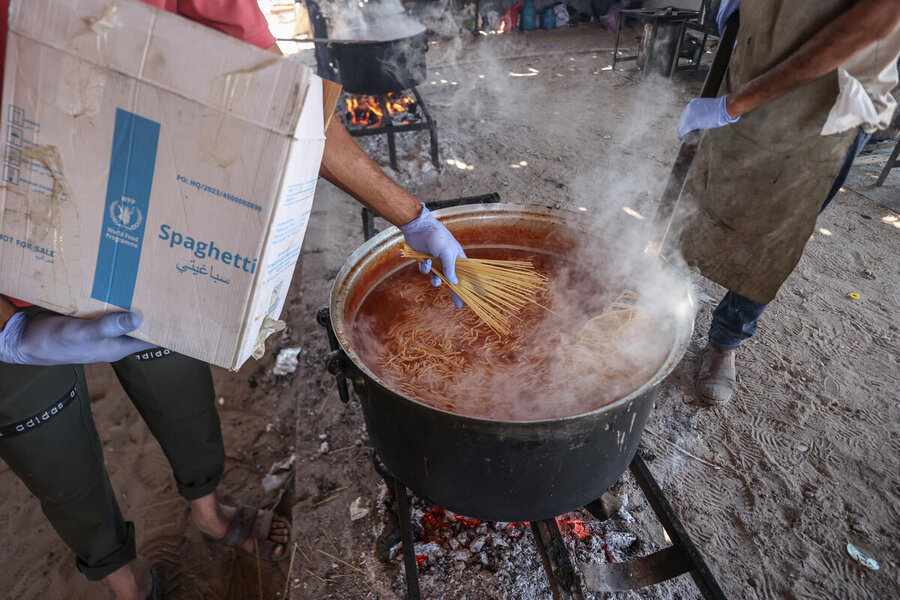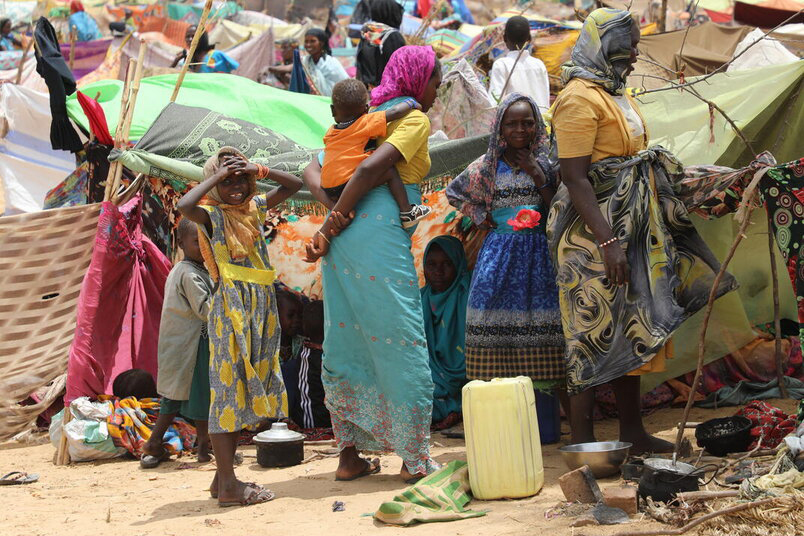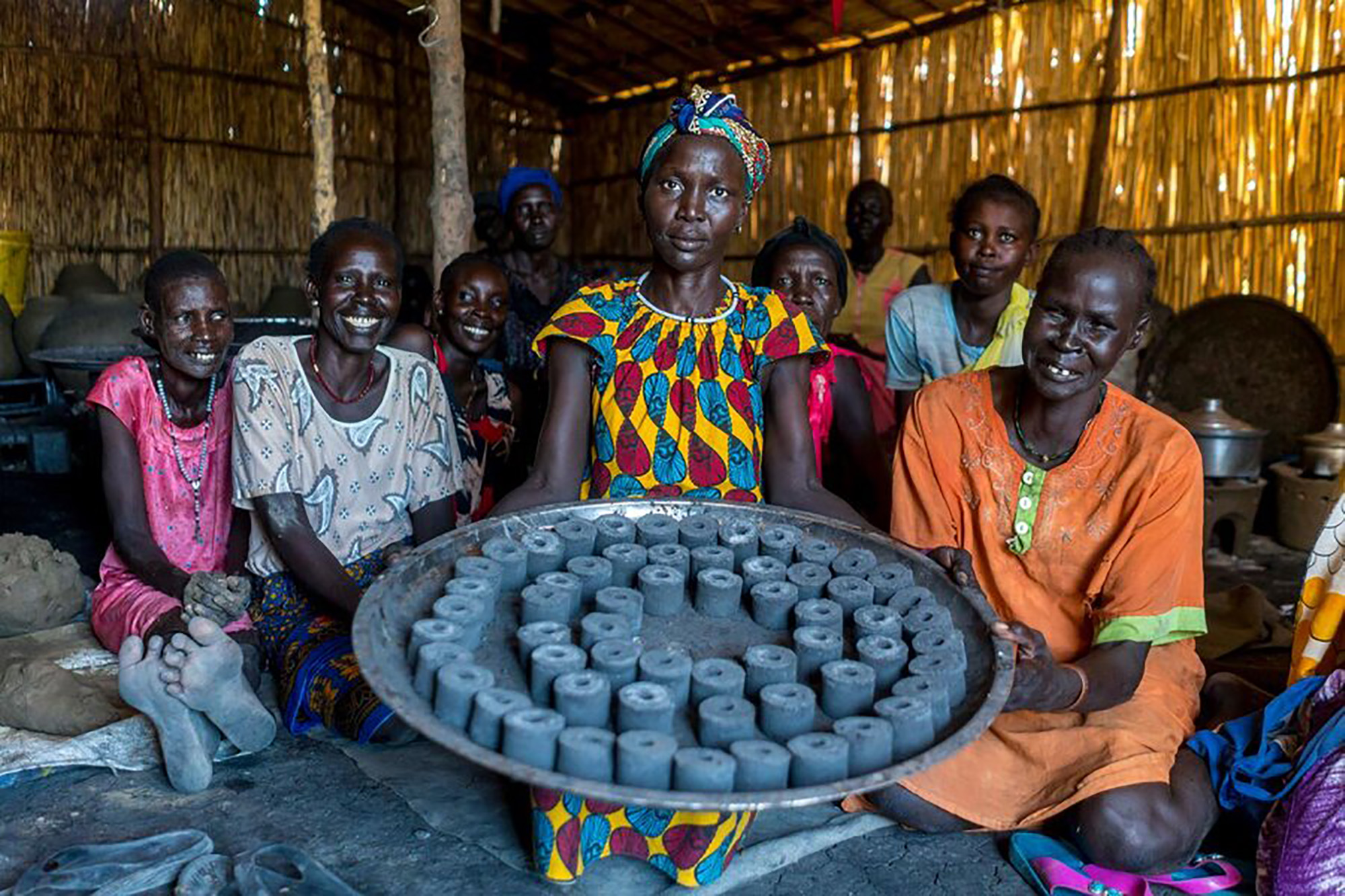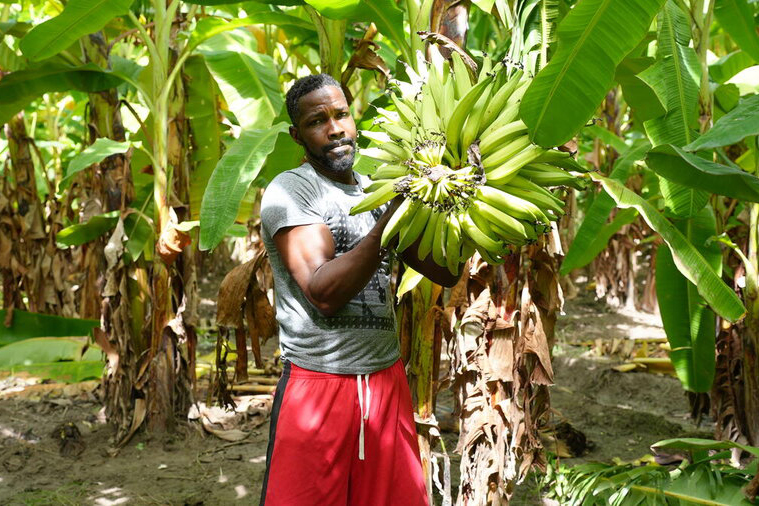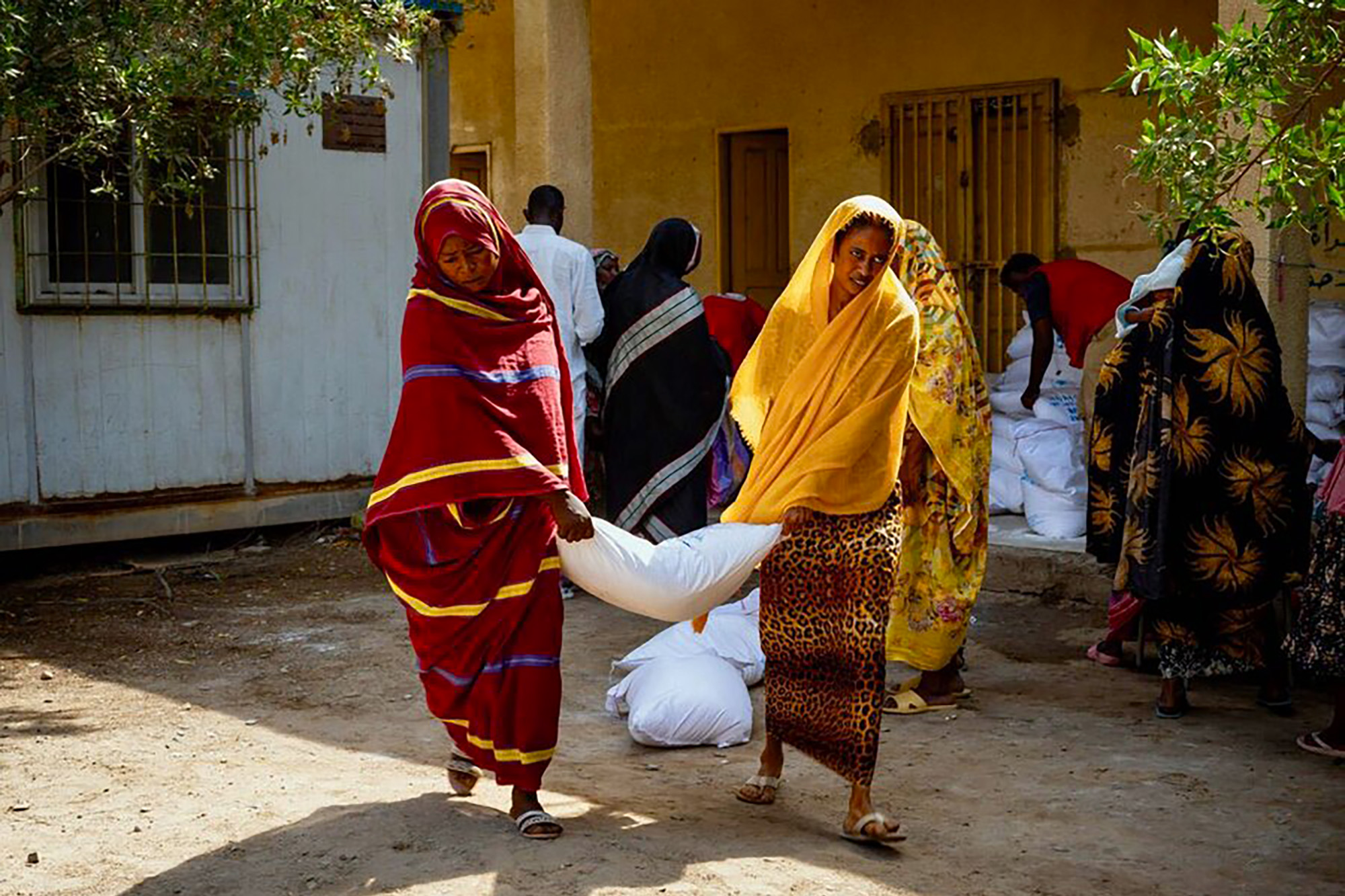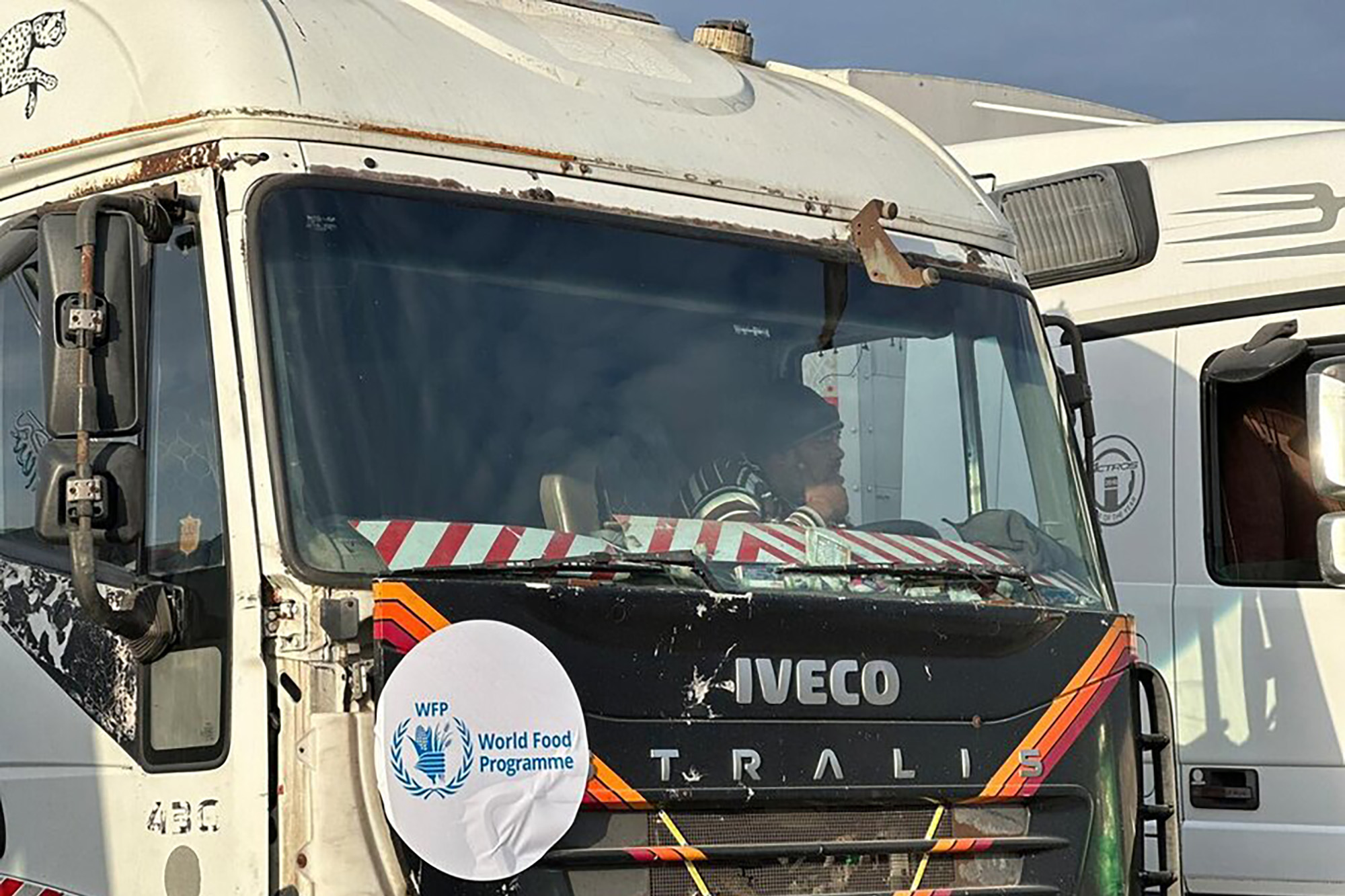Tropical storm Lisa left devastating effects on farmers in Belize, highlighting the crucial role of emergency assistance in building resilience against climate shocks in Small Island Developing States (SIDS).
WFP
Amid access restrictions and closing of bakeries in Rafah, the World Food Programme is working to serve remaining supplies to as many people as possible.
The escalating military activity in Rafah, southern Gaza, has triggered mass displacement and threatens a humanitarian catastrophe, with the World Food Programme urgently needing access and supplies to rebuild aid distribution systems.
Kenyan women in savings groups spearhead economic empowerment, transforming lives and challenging traditional norms.
In Ethiopia's Somali Region, women are not only building businesses but also resilience against climate change through empowerment initiatives that provide training, access to markets, and financial services.
Sudan's ongoing war has led to widespread displacement, hunger, and a yearning for peace and normalcy among its affected population.
In Rubkona, South Sudan, Nyagara Maluit shows off charcoal briquettes made out of carbonized water hyacinths - an invasive species that disrupts waterways and aquatic food systems, exacerbating flooding. Turning them into sustainable fuel helps reduce deforestation. Over 70% of the world's food-insecure people are in areas where water is scarce. Climate change is worsening water-related hazards and land degradation, leading to social, gender and education inequality. The World Food Programme (WFP) responds to water-related disasters and provides emergency food and cash assistance around the world while also building resilience in communities by restoring ecosystems to improve long-term water availability and food access.
Farmers in Haiti's Artibonite department, face dire challenges due to armed bandits plundering crops, underscoring the urgent need for security and stability to ensure food security and long-term resilience in the country's agricultural sector.
While rising costs, climate, conflict, and war all continue to impact global food insecurity, WFP remains committed to the UN Sustainable Development Goals: specifically, SDG Goal 2: Zero Hunger.
The World Food Programme highlights women's vital role in climate resilience amidst heightened vulnerability and underrepresentation in decision-making.
WFP shares firsthand accounts from refugees, aid workers, and experts on the ground about the challenges and the critical assistance being provided due to the ongoing conflict in Sudan.

WFP: Food distribution paused in Gaza
Food distribution has been halted in the North of Gaza due to heightened safety and security risks to both the delivery personnel and recipients.
Awad Adam and his wife Nafisa have been on the move since war broke out in Sudan last April. Today, they are among more than 10 million people uprooted from their homes in the world's largest displacement crisis. The World Food Programme (WFP) is working with other humanitarian agencies to respond to the escalating needs. Over the past year, WFP’s assistance has reached some 6.5 million people inside Sudan, as well as many others who have fled to neighboring countries. But needs are skyrocketing. Nationwide, nearly 18 million people face extreme food insecurity. Those trapped in conflict zones face the highest levels of hunger. Reaching them is becoming almost impossible due to security threats, roadblocks and other challenges. Without unfettered access, WFP warns of a looming hunger catastrophe.
The World Food Programme's (WFP) supply chain is facing bottlenecks at the Rafah crossing in Egypt, which is hindering its efforts to assist in Gaza. The border checks on the Gaza side have created bottlenecks, causing truck drivers to wait for days on end. Only two border crossings into Gaza are open, both on the Egyptian side. The needs in Gaza are enormous, and the entire population is acutely food insecure. Over half a million people face the most extreme stage of hunger. Suzanne Fenton, head of communications for WFP's supply chain division, tells us about her experience of being part of a convoy of trucks trying to deliver food to the Gaza Strip.
The Democratic Republic of Congo, along with Afghanistan, Yemen, and Syria, is among the countries that face the biggest emergencies when it comes to food according to the World Food Programme (WFP). Decades of conflict and climate change have reduced people's access to basic foods, leading to unprecedented levels of hunger. Despite the growing humanitarian needs and the global funding crisis that the WFP is trying to manage, the tragic situation in the eastern part of DRC still receives very little attention. As the African Cup of Nations attracts all the attention, it's important to reflect on what could be possible for the children of DRC, and more broadly, the children across the Continent.


